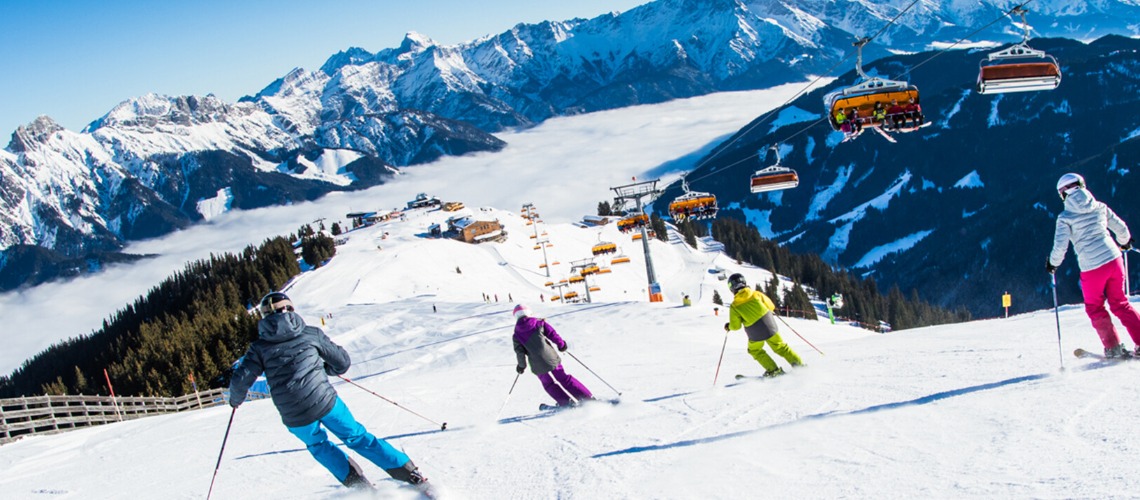Leoganger Bergbahnen Running On Plant Power From Next Winter

The topic of "energy transition" is currently on everyone's lips. In Saalfelden Leogang it is already being carried out with full energy: Because the Leoganger Bergbahnen have bought all the fuel they need for the coming winter 2023/24 in the form of HVO100 regenerative fuel. That means: Away from fossil fuels and towards savings of up to 90 percent in CO₂ emissions. The mountain railways thus assume a pioneering role in terms of sustainability and resource conservation.
As the first ski area in Austria up to 90 percent less CO₂
Around 220,000 liters are the total fuel requirements of the Leogang mountain railways. For the snow groomers, the entire fleet including tractors. After switching to the synthetic diesel fuel GTL in the current winter, the company is now switching completely to HVO100 regenerative fuel. With the use of HVO, which is made from 100 percent renewable raw materials, the Leoganger Bergbahnen - as the first ski area in Austria - save up to 90 percent CO₂. The conversion also does not entail any conversion of the vehicles and snow groomers, the tanks only have to be completely emptied and cleaned in the company petrol station.
“Leoganger Bergbahnen have been actively involved in the topic of sustainability for over 15 years. In addition to energy generation and energy efficiency, we are now able to use this new HVO fuel to convert our entire diesel-powered piste and vehicle fleet to the almost CO₂-neutral HVO fuel made from vegetable oils and vegetable waste from biomass," says Kornel Grundner, Managing Director of Leoganger Bergbahnen. "We move with our devices directly in nature and therefore it is very important to us to be sustainable here and to be able to make an important contribution to climate protection."
Salzburg's Governor Dr. Wilfried Haslauer: "With the switch from diesel to sustainable HVO fuel made from vegetable oil, the Leoganger Bergbahnen are setting the best example in the energy transition. As a result, a large part of the greenhouse emissions will be saved from the coming winter season. With this measure, the cable car company is also underlining its role as a role model in the ambitious SALZBURG 2050 climate and energy strategy.”
The Leoganger Bergbahnen have been investing in projects for energy efficiency, sustainability and resource conservation since 2006, including participation in lighthouse projects such as "Clean Energy For Tourism" (CE4T) or as the first cable car partner for the "Climate and Energy Strategy Salzburg 2050" initiative. In 2017, the Leoganger Bergbahnen were awarded the Salzburg Environmental Journal as one of eight Salzburg companies that together had saved 1,700 tons of CO₂ per year.
Hydrogenated Vegetable Oil: This is HVO fuel
For many, HVO fuel is still a foreign word. But you will hear about it more often in the future. HVO stands for Hydrotreated Vegetable Oil. In addition to vegetable oils, waste as well as oils and fats from residues are used for this type of fuel, such as used cooking oil or frying fat from kitchens and chip shops. Only renewable, organic raw materials are used. The vegetable oil is cleaned and treated with hydrogen at a high temperature, making it usable as a fuel.
"We are pleased to be able to offer the Leoganger Bergbahnen a sustainable opportunity to significantly reduce the greenhouse gas emissions of their existing fleet. With HVO100 Regenerative from EnergieDirect, the Leoganger Bergbahnen can tackle their ambitious climate goals," says Hans-Peter Hintermayer, Managing Director of EnergieDirect Austria GmbH.














